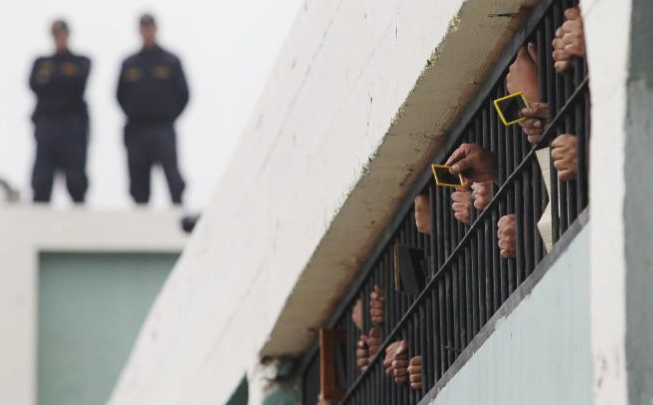Every four, five, or six years we return to the same discussion: the issue of citizen security. A topic that is high on the agendas of Latin America’s presidential candidates every time they need to attract voters, who are increasingly desperate due to the insecurity that plagues them. Both in the city and in the countryside, even in their own neighborhood and home. Voters, common people, of any socioeconomic stratum, who demand a “hard hand” against crime and violence. Citizens of any Latin American country who see how violence, insecurity, and crime do not cease and, on the contrary, grow every year, bringing with them the feeling of anguish, fear, uprooting, forced displacement, and tears for the loss of loved ones.
But why do we return to the same discussion about what to do to improve the security situation of citizens every time there is a change of government? On the one hand, citizens demand immediate solutions, which encourages electoral populism. The rulers in power try to satisfy the citizens’ hunger for results with short-term policies that produce numbers to show.
Long-term policies do not prosper, partly because the incoming president wants to erase everything done by his predecessor and start from scratch, but also because citizens themselves choose to see the results now and not later.
In June 2021, security experts Cafferata and Scartascini published a document for the Inter-American Development Bank (IDB), entitled “Combating Crime in Latin America and the Caribbean: What Public Policies Do Citizens Want?” in which they gather the perceptions of thousands of Latin Americans surveyed on various security issues. One of the main conclusions of the document is that security is one of the most relevant issues for citizens, even above poverty and unemployment. People believe that more resources should be given to fight crime than to help close inequality gaps.
Even so, it is curious that when asked about the resources that should be allocated to prevention or to strengthening the police, the main entity responsible for ensuring the security of a city or a country, the opinions show that there is not so much support for the proposals. However, there is support for the idea of compensating the victims of violence with economic compensation and imposing high prison sentences on criminals.
With this study, the authors concluded that the deficiency in effective long-term citizen security policies is largely due to the immediacy demanded by citizens, voters, and their elected officials, to remedy the enormous cultural and social problems we are going through in Latin America.
But it would be unfair to say that it is the citizens’ fault. We will have to review what governments have done to advance in the fight against crime in the region, and how the various actors in society have articulated to achieve the harmony and peace that are so longed for.
Laura Chinchilla and Doreen Vorndran, in a report also published for the IDB in November 2018, mention the significant progress in terms of public policy on citizen security both at the level of research and resources. They even mention that the IDB has received and approved countless credit requests from Latin American governments to combat crime in the region.
However, the authors express their concerns and make a series of recommendations to governments: “Good institutional management is essential for an effective citizen security policy. For this, we need political will, to generate processes with continuity, well-defined objectives, and goals, and to build good governance, which allows the orderly and coordinated participation of different relevant actors”.
Chinchilla and Vorndran, in their research, document the transition from a policy of “every man for himself”, with absenteeism of the state and blindness to crime, to a punitive policy of “hard hand”, with transgressive and repressive practices by some governments and their police forces, to a current policy more focused on coexistence and prevention.
In this sense, various consultative and decision-making bodies have been organized in the region for the prevention of and reaction to security problems. In the particular case of Colombia, this body is called the National Council for Citizen Security and Coexistence, created in 2015. It is led by the President of the Republic and his government ministers, as well as the National Police Directorate and the representation of governors and mayors. It is striking that there are no citizen representatives in this Council.
We know that the policymakers are the rulers, popularly elected civilians (in democratic countries), who often lack training in security issues, to such an extent that their decisions and orders to the police forces have led to the latter not enjoying a superb reputation.
It is therefore imperative that both rulers and citizens are trained in concepts, laws, theories, practices, and best ways to implement security plans in cities, neighborhoods, and even in homes and schools.
This training already goes beyond the walls of the universities and invites us to think of a proper enclosure and scenario for the approach of serious and effective policies for our countries. Places for research, reflection, and action, where all those interested in doing their bit to reduce insecurity rates and achieve the longed-for peaceful coexistence in the region can be trained.
We have already proven that citizen security is increasingly relevant for citizens and governments, but due to the complexity of the crime issue and the need for immediate results, public policies are short-term designed. Therefore, it is necessary that governments work to develop strategies and articulate efforts to settle this historical debt with citizens.
*Translated by Janaína Ruviaro da Silva from the original in Spanish.













